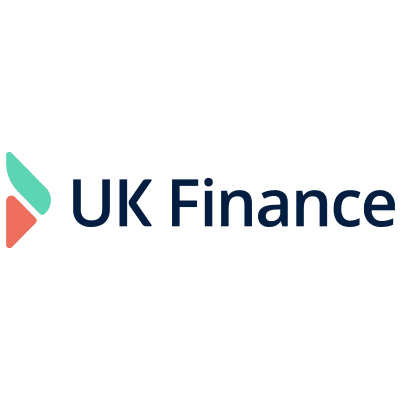How to Finance a Start Up Business
Starting your own business is an exciting adventure, so it shouldn’t be dulled down by the worry of how to finance things and really get started. Previously, getting funding for a new venture was hard if it seemed that your only choice was convincing a major bank to give you a loan. Today, however, there are myriad options available to help you finance your new business.
Together, we’ll explore what’s available on the market. If something seems like it’ll be a good fit, you can get in touch with one of our team, who will be happy to discuss next steps and signpost you towards suitable providers wherever they can.
Regardless of what type of finance you plan to go with, it’s a good idea to draw up a business plan and a budget to figure out just how much finance you might require and when. If you end up involving third parties, whether they be investors, a bank, or family, this will showcase that you’ve put significant thought into the process. Even if you only put your own funds in, then it’s still just as useful for you to have a plan and budget on hand to refer to.
Self-funding
This is also known as bootstrapping and involves you putting your own money or capital into the business you’re creating. It means you’re not reliant on any external source or lender for the finance, but you do also open yourself up to increased risk if the business does not succeed for any reason.
Bootstrapping will encourage you to be more cost-effective because your personal assets are at stake and there is a sense of freedom in being so self-sufficient. Think carefully and consider all avenues and any potential personal ramifications of inserting too many personal savings into a business at the start-up stage.
Invoice finance
With the help of invoice financing, you can receive an advance of up to 100% of an invoice value that is owed to you by customers. This is not technically considered a loan because you and your business have already earned the money – you’re simply waiting on the customer to pay the amount.
This method of financing improves your cash flow by eliminating the 30-120 day wait for invoice payments, and means that you will have more accessible working capital with which to continue growing your business.
There are a few different avenues to go down when it comes to invoice finance. First there is invoice factoring, where the process is disclosed and your customers are aware that the invoices are being financed as they pay their due amount to the funder rather than to you. Invoice discounting is a confidential facility where your customers pay their due amount into a trust account that is in your business’s name and is handled by the funder.
As a start-up, you may not qualify for discounting as there are certain requirements you must meet (such as established credit collection process or trading history). Instead, you can opt for a CHOCS facility. This stands for Client Handles Own Collections and is essentially an invoice factoring agreement where you are responsible for chasing your clients for payment rather than your funder doing this for you.
Family and friends
Members of your family or close friends are likely to be supportive of your new business venture and may be in a position to help you with a loan. This might also mean you won’t pay interest as you would with a bank loan, and repayment terms will be more flexible. To keep things uncomplicated and streamlined, it’s still important to treat this like any other business arrangement and come up with a written agreement to decide what each of you will provide at the start up stage and also as the business grows. This will prevent any awkward misunderstandings later on and will keep the boundaries of business and family or friendship unblurred.
Crowdfunding
More popular in recent years, crowdfunding means sourcing small funds from a larger group. It’s a cost-effective method for the most part, especially if you can muster up generous contacts who want to contribute with little to no interest and who don’t require a share of your business in return.
Some investors sourced through crowdfunding might be interested in owning a partial share, however, so this is something to take into consideration for your long term business plans. If investors are something you would like to take on, then it might be worth trying to find big investors directly.
Angel investment
As seen on the ever-popular TV show Dragons’ Den, getting investment in your business involves giving away a share of your enterprise in return for a cash sum. This approach can bring in a considerable amount of money but it’s important to weigh up whether you want to give away part of the business that you have created. It is also beneficial to have investors who will be able to support you with their industry knowledge and experience, as well as having a personal vested interest in your company.
To pique the interest of investors, you should prepare a growth plan for the next five years at least as many investors will expect to see a return within this amount of time.
Government grants
Depending on your sector, there are many types of government grant that you can apply for to help give your start up business the initial push it needs. They are free in the sense that you do not have to pay the money back, but there can be expense in securing the grant in the first place – oftentimes there could be a requirement to match funding.
The process of applying is also lengthy and time-consuming, not to mention competitive due to the ’free’ element. Be confident that you’re the best candidate for your chosen grant before you start exploring this as a viable means of securing funding for your business.
If you don’t qualify for a government grant, then consider the government backed scheme Start Up Loans. They are a subsidiary of the British Business Bank and provide finance and support for new businesses and those who struggle to get access to financing. A loan from the company is a personal loan of up to £25,000 per partner or owner of the business (with a maximum of £100,000 allocated per business), and comes with a year of mentoring from Start Up Loans to help your business grow.
The Start Up Loan is not a grant, so you are required to pay the money back.
Bank loan or overdraft
You may wonder how this option has made it onto the list after discussing how difficult it was in our opening paragraph, but we’re using ‘bank loan’ as a blanket term to cover the different types of loan that are available to businesses of varying sizes, including start ups.
Whilst many larger banks are hesitant to lend to start-ups due to the lack of credit history or assets, you may still be able to get an unsecured business loan, provided you have a minimum of 18-24 months trading history. This means you don’t need to offer up assets as collateral, merely a personal guarantee. You will still need to have a thorough understanding of your business finances and personal credit history.
If you haven’t been trading for that long but have assets such as property, then you may be eligible for a secured business loan instead.
A business overdraft is a workable solution to short-term cash flow issues, or simply something to have in place in case of emergencies (in which case you’re under no obligation to use any of it). However, you may be asked to repay the amount due upon request from the bank, so overdrafts are not recommended as long-term funding for your business.
Get Started Now
Complete our quick form and we will be in touch to provide free, no obligation, impartial information about funding options from over 25 lenders.
By submitting your details for us to get in touch, you agree that you have read and understood our Terms and Privacy Policy.





